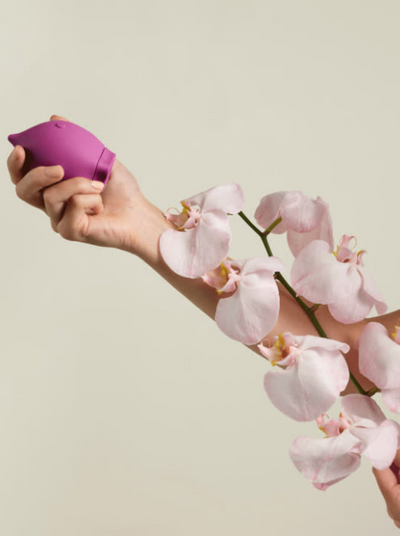Hormones play a major role in all aspects of our health. How we sleep, our moods, metabolising food and of course the regulation of our reproductive systems and sexual function. Imbalanced hormones can cause a range of unpleasant symptoms such as mood swings, painful periods and low or diminished libido. This is why listening to our bodies and learning what regulates or imbalances our hormones is essential to our health and wellbeing.
Lack of sex drive can be very frustrating and make many of us question our relationships as well as themselves. But it is not as uncommon as many people are thought to believe. Hormonal changes can occur at any age after puberty and have been shown to influence sexual function in two ways.
Hormones directly impact our libido.
First, oestrogen and androgen levels seem to be directly related to libido. Throughout our menstrual cycles we maintain a low level of testosterone and it increases and peaks at ovulation then reduces again for the remainder of the cycle. This peak aims to increase libido when we are fertile with its goal for us to find a mate, get busy between the sheets and become pregnant. At the same time that testosterone peaks in our cycle, so does our oestrogen while maintaining a higher level in comparison to testosterone throughout the month. When we have a lack of these two hormones, we begin to lose our desire for sex, feel more stressed and anxious which can further reduce libido and sexual activity. Further decrease in oestrogen (oestradiol to be specific) causes vaginal dryness and lack of lubrication which can lead to pain during sex. Our body responding in this way can have a significant negative effect on sexual response and our libido.
Food can impact our body’s sexual response.
Secondly, hyperlipidaemia (high levels of fat in the blood stream such as cholesterol or triglycerides) may adversely impact sexual function. A relationship between elevated lipids and erectile dysfunction has been shown in men, and recent research has suggested that women may be similarly affected by endothelial dysfunction. These high levels of harmful fats in our blood stream and organs diminishes circulation causing a reduction in pelvic and clitoral blood flow, which is associated with reduced engorgement, lubrication and ability to orgasm. Nourishing our bodies with healthy meals, exercise, down time and plenty of sleep is essential to balancing hormones and feeling our best. However, this isn’t always so easy to achieve or maybe it’s still not enough to get your sex drive back on track. We can benefit from calling in additional support, which is where herbal medicine and the use of adaptogens come into play.
What are adaptogens?
An adaptogen is a substance that increases the body’s resistance or adaptation to physical, environmental, emotional or biological stressors and promotes normal physiological function. By doing this, adaptogens can help fight fatigue, boost immunity, rejuvenate and rebalance the mind and body. They work by helping the body adapt to stress and have the ability to help support, sustain and heal our nervous system, which can become overworked due to chronic stress. Adaptogens are also beneficial in restoring our sexual desire towards ourselves and others due to their role in balancing hormones.
There are many different types of adaptogens - some are calming, aimed at reducing stress and anxiety, while other are uplifting and energising to help you get excited about sex again. They can help to improve mood, provide energy and boost stamina. Many adaptogens are modulators, meaning they can help the body to recalibrate and find balance, this is especially important when it comes to hormonal balance. All adaptogens support the regulation of the adrenal glands (1), two small glands atop the kidneys that produce hormones that regulate our menstrual cycle, metabolism and stress response. Adaptogens come in different forms from food, herbal medicine and my personal favourite, orgasms!
Where to find adaptogens.
Herbal adaptogens come from various plant species and may support your hormones, adrenals and libido:
- Panax ginseng - increases energy, reduces stress and supports immune system
- Ashwagandha (aka withania or indian ginseng) - reduces anxiety, supports sleep and regulates stress response
- Astragalus - combats fatigue
- Cordyceps mushroom - boosts libido and stamina
- Rhodiola - regulates hormone production, reduces stress and improves mood
- Holy basil (aka tulsi) - reduces stress and anxiety
- Liquorice root - supports healthy oestrogen levels, improves sleep and has a calming effect
- Maca - supports sex hormone secretion and adrenal gland stimulation
Orgasm: a natural adaptogen.
Oh yes, that’s right! Orgasms are more than just something to get your heart beating fast and giving you toe curling pleasure, they are actually good for you. Orgasms are a very effective adaptogen. When you orgasm, you release oxytocin (also known as the love hormone) which increases feelings of affection and social bonding. This can also include affection towards yourself and increase feelings of self-bonding and self-love. Oxytocin counteracts the negative effects of cortisol making it a stress reliever and anxiety reducer. Orgasms increase circulation to the pelvic floor muscles and organs, this improves blood flow, stimulation and nutrient transport to vital areas. Increasing your blood flow to the area will also regulate and support a healthy libido.
So, if you’re feeling stressed or anxious, have an orgasm. Feeling fatigued and run down, have an orgasm. Need a little extra emotional connection, give yourself some lovin’ with your favorite toy or find someone who respects and values you and have an orgasm.
By Lily Zurlino, Clinical Naturopath from BareHealth
Sources(1) Women, hormones and the menstrual cycle, by Ruth Trickey








